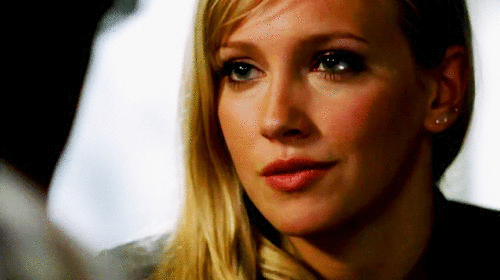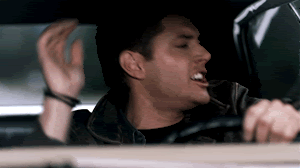A Look into the Occult Fascinations of Society Through Television
The ideas of the "occult" and it's supernatural "dark forces" have been alive for centuries in different countries, religions, and teachings. Today's pop culture furthers the growing fascination and obsession in the "occult" beliefs through television shows such as Supernatural. Supernatural encompasses the full fascination and obsession with the "occult" and it's "dark forces" through its story and context.
Supernatural's story furthers the growth of occult fascinations and obsessions. In the show, two brothers battle "dark forces" from occult beliefs in order to save the good. These "dark forces" include demons, witches, ghosts, vampires, and werewolves, all of which pertain to the superstitions towards occult beliefs. The show generates the fascination of these occult beings with their history, religious meanings, and position within the story. The audience begins to wonder about and obsess over these "dark forces" and the good and bad sides to them. In some cases, the "bad" character turns out to be a resourceful ally such as Ruby, a witch turned demon. In other cases, the "good" and "bad" beings stick to their stereotypical sides. Overall the show creates a growing fascination and obsession for the "occult" world.
Supernatural's "dark forces" appease both sides of the "occult" beliefs and debate. Throughout the entire show, the characters question where their faith truly lies based on their experiences with these "dark forces". Just like Nathaniel Hawthorne's Young Goodman Brown character, the brothers are surprised, challenged, and tempted to follow the "occult". This continues to strengthen the fascination and obsession of the occult and why their "dark forces" have been feared throughout the centuries. More people want to know which side is the "right" side to belief in when it comes to their own personal beliefs. The show's story and context provides the push to delve further into the subject and decide. The show ultimately popularizes the growing essence of fascination and obsession with the "occult".
Supernatural's portrayal of the "occult" and its "dark forces" are very influential to the beliefs of people. By showing the two sides to the occult debate, they also influence people's beliefs based on their depictions. This shows how influential America's culture is to changes in thought due to pop culture beliefs. Although the show may challenge the personal beliefs of many people, it dissuades from conflicts between these beliefs due it's equal depiction of both sides of the story. In turn, this provides more popularity and views for the show and ultimately reveals the very essence of American pop culture,what the people believe and want.
The television show, Supernatural, provides the very heart of the fascination and obsession for the "occult" and its" dark forces". Today's pop culture alters superstitions into fascination and obsession in order to generate more popularity for the ideas of the "occult". America's culture will forever be influenced by the many changes created by its pop culture and beliefs.
Supernatural's story furthers the growth of occult fascinations and obsessions. In the show, two brothers battle "dark forces" from occult beliefs in order to save the good. These "dark forces" include demons, witches, ghosts, vampires, and werewolves, all of which pertain to the superstitions towards occult beliefs. The show generates the fascination of these occult beings with their history, religious meanings, and position within the story. The audience begins to wonder about and obsess over these "dark forces" and the good and bad sides to them. In some cases, the "bad" character turns out to be a resourceful ally such as Ruby, a witch turned demon. In other cases, the "good" and "bad" beings stick to their stereotypical sides. Overall the show creates a growing fascination and obsession for the "occult" world.
Supernatural's "dark forces" appease both sides of the "occult" beliefs and debate. Throughout the entire show, the characters question where their faith truly lies based on their experiences with these "dark forces". Just like Nathaniel Hawthorne's Young Goodman Brown character, the brothers are surprised, challenged, and tempted to follow the "occult". This continues to strengthen the fascination and obsession of the occult and why their "dark forces" have been feared throughout the centuries. More people want to know which side is the "right" side to belief in when it comes to their own personal beliefs. The show's story and context provides the push to delve further into the subject and decide. The show ultimately popularizes the growing essence of fascination and obsession with the "occult".
Supernatural's portrayal of the "occult" and its "dark forces" are very influential to the beliefs of people. By showing the two sides to the occult debate, they also influence people's beliefs based on their depictions. This shows how influential America's culture is to changes in thought due to pop culture beliefs. Although the show may challenge the personal beliefs of many people, it dissuades from conflicts between these beliefs due it's equal depiction of both sides of the story. In turn, this provides more popularity and views for the show and ultimately reveals the very essence of American pop culture,what the people believe and want.
The television show, Supernatural, provides the very heart of the fascination and obsession for the "occult" and its" dark forces". Today's pop culture alters superstitions into fascination and obsession in order to generate more popularity for the ideas of the "occult". America's culture will forever be influenced by the many changes created by its pop culture and beliefs.
Gif 4: http://i350.photobucket.com/albums/q435/eryn2607/Supernatural%20Gifs/tumblr_l9j3wtZEQ91qd2z1y.gif





